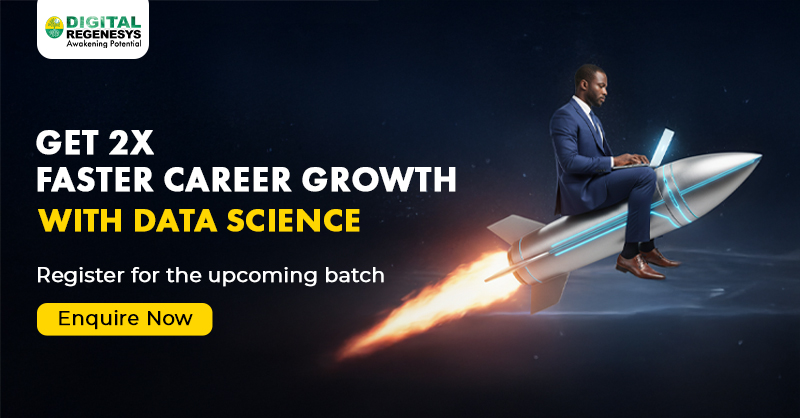How to Study Data Science: A Complete Guide for Beginners

Data is everywhere, from businesses to healthcare, and even in the way people make daily choices. The ability to interpret and use data correctly has become a valuable skill for professionals across industries.
Those who wish to enter this field often start with curiosity but may feel unsure about where and how to begin. Studying data science can appear complex, but with the right approach, anyone can acquire the knowledge necessary to understand and work effectively with data.
In this article, we will explore how to study data science in a structured way. You will learn about the skills and preparation required, the requirements to study data science, and the different study options available both locally and globally.
This article will also guide you on how to prepare for career opportunities, highlight where to study data science in South Africa, and give you a clear path to start your journey.
How to Study Data Science: Step-by-Step Learning Approach
Learning how to study data science requires a plan. Many learners start by experimenting with coding or online tools, but soon realise that without order, progress becomes difficult. To succeed, you need to move in stages, from theory to application, while building confidence at each step.
Data science is an integration of mathematics, coding, data handling, and communication. Skipping one part makes it harder to connect the entire process.
A good study plan begins with the fundamentals. Mathematics and statistics form the base, while coding allows you to apply ideas practically. Once you are comfortable with the basics, you can advance to data visualisation, which enables clear communication of results.
The journey should also include hands-on projects, as they allow you to practise and prove your skills. The key is consistency and continuous learning.
Here are the main steps you can follow:
1. Begin with mathematics and statistics
Focus on algebra, probability, and regression analysis. These concepts explain how models are built and how predictions are formed from raw data.
2. Learn a programming language
Programming helps put theory into practice. Python is a common choice, as it offers libraries that support data cleaning, analysis, and machine learning.
3. Understand data visualisation
Graphs and charts are essential to communicate findings. Tools such as Matplotlib or Tableau make insights easier to understand for different audiences.
4. Work on practical projects
Real-world projects provide experience beyond theory. They also help build a portfolio that can showcase your skills to potential employers.
Gain Insights on Data Science Certification in South Africa.

Is Coding Necessary for Data Science?
Turning raw data into actionable insights requires analytical thinking, statistical understanding, and technical skills. Coding is at the heart of this work, enabling automation, modelling, and efficient data handling.
This explains the importance of coding for anyone entering the field of data science:
1. Data Handling and Organisation
Coding enables data scientists to sort, merge, and structure large datasets efficiently, making patterns and inconsistencies easier to identify.
2. Exploring Insights
Programming quickly summarises trends and correlations, helping analysts uncover hidden insights for more thoughtful decisions.
3. Building Analytical Models
Coding is essential for predictive and classification models, allowing experimentation and systematic improvement of outcomes.
4. Automating Routine Workflows
Repetitive tasks, such as fetching data or updating reports, can be automated, freeing up time for more in-depth analysis.
5. Interactive Visualisations
Coding enables dynamic dashboards and visuals, helping teams and non-technical stakeholders understand insights faster.
6. Handling Unstructured Data
Professionals can process diverse data types, such as text, images, or social feeds, turning messy data into actionable information.
7. Collaboration and Documentation
Well-written code documents workflows, making analyses easy to reproduce and validate in team projects.
8. Custom Solutions and Innovation
Coding enables the creation of customised tools or scripts, enhancing creativity and problem-solving capabilities beyond standard software.
While some beginner-friendly tools allow limited data analysis without coding, mastering at least one programming language greatly enhances your efficiency and career prospects in data science.
Also read: 4 In-Demand Data Science Jobs.
Where to Study Data Science in South Africa: Top Options for Learners
For those who want to know where to study data science in South Africa, the good news is that there are multiple options. The country has a growing demand for data skills, and both formal education and online learning opportunities are available to meet this need.
Learners can select a path based on their goals, whether they prefer structured study or flexible, self-paced learning.
Universities offer structured academic courses that provide recognised qualifications. On the other hand, boot camps and workshops offer shorter, skill-focused learning experiences. For those who want flexibility, data science online courses allow study at any pace, which suits working professionals.
Additionally, community groups and events in South Africa offer valuable peer support and networking opportunities. Choosing a path depends on your learning style, career goals, and the amount of time available.
Here are the main options available:
- Universities and colleges – Structured courses provide in-depth theory and recognised certifications that are useful for career progression.
- Bootcamps and workshops – These short-term learning formats are ideal for acquiring specific skills, such as machine learning or data visualisation.
- Online courses – Flexible online options enable learners to balance their studies with other commitments while gaining practical knowledge.
- Community groups and events – Local meetups and peer networks give exposure to practical insights and encourage collaborative learning.
Read more on Best Data Science Online Courses in South Africa.
Best Place to Study Data Science in the World: Global Learning Destinations
Choosing the best place to study data science in the world involves considering access to quality education, curriculum depth, and global recognition. While many learners look to prestigious universities abroad, modern online options provide a credible alternative without the need to relocate.
One such option is Digital Regenesys, which delivers a globally recognised data science certification course through a structured and practical curriculum.
This 30-week online course covers a wide range of topics, from Python programming and database management to advanced areas like machine learning, deep learning, natural language processing, and tools for deploying data science projects.
Learners also gain hands-on experience with practical aspects like cloud computing, MLOps, and big data technologies. With guidance from industry expert faculty and a globally recognised certification, Digital Regenesys offers an accessible route to gaining international-standard knowledge in data science.
Here are the core areas covered in the Digital Regenesys course:
- Programming fundamentals – Modules on Python and R provide the foundation for handling data, creating algorithms, and applying statistical models.
- Database management – Learners explore relational and non-relational databases such as MySQL and MongoDB to manage and analyse data efficiently.
- Machine learning and artificial intelligence – Topics include supervised and unsupervised learning, deep learning, computer vision, and natural language processing for advanced applications.
- Big data and cloud tools – Training covers Streamlit, Seaborn, and Pandas, giving learners practical knowledge of managing large-scale data and deploying solutions.
How to Study Data Science Successfully: Tips for Career Readiness
Knowing how to study data science is not only about learning concepts but also about preparing for real-world applications. Employers and industries expect learners to apply theory to practical challenges.
For this reason, your study process should include not just learning but also practising, experimenting, and communicating results. By focusing on readiness, you ensure that your skills match career expectations.
A successful approach combines theory and practice. Learners should focus on solving real-world problems, rather than just textbook exercises. Working on personal projects beyond formal courses shows initiative and develops creativity.
Online communities provide support and foster the sharing of ideas, which is beneficial for ongoing improvement. Additionally, adaptability and curiosity are essential traits for career growth.
Here are strategies to ensure career readiness:
- Balance theory with application – Apply concepts through projects, ensuring knowledge is not only theoretical but also practical.
- Focus on solving real problems – Choose projects that address issues in business, healthcare, or society. This makes learning more relevant.
- Work on personal projects – Projects outside of formal study build confidence and show independent initiative.
- Join online communities – Networking online provides access to discussions, resources, and feedback from peers and experts.
Read more on Is Data Science Hard?

Conclusion: Shaping Your Future Through Data Science
Learning how to study data science requires discipline, planning, and a focused approach. By building strong foundations in mathematics, statistics, and programming, then progressing to visualisation and projects, learners can prepare themselves for both academic and professional success.
Studying through universities, boot camps, or online data science courses offers flexibility, while community engagement helps strengthen professional networks. Globally, learners also have the option to explore the best place to study data science in the world, gaining exposure to advanced knowledge.
Data will continue to influence industries worldwide, making this field both relevant and rewarding. The important step is to start now, remain consistent, and keep learning along the way.
Visit Digital Regenesys to explore the data science course and take the first step towards building your future in data.
Last Updated: 13 October 2025
